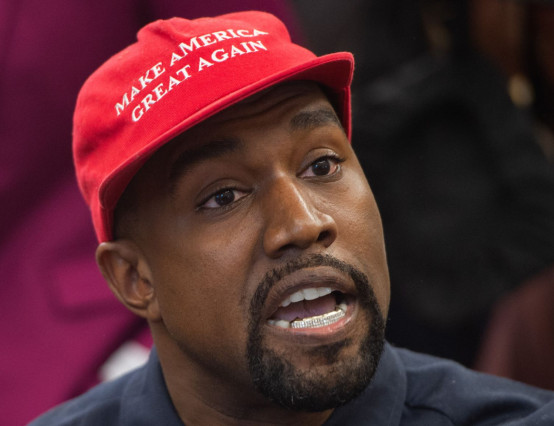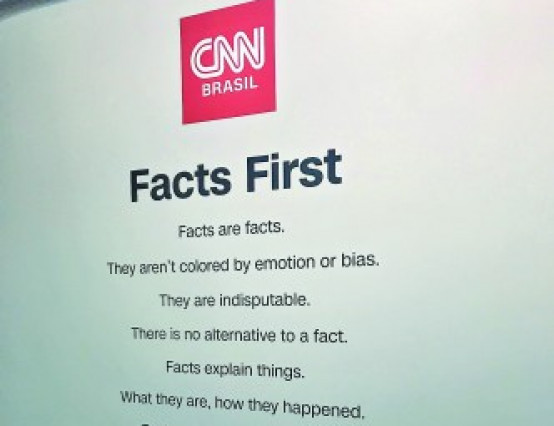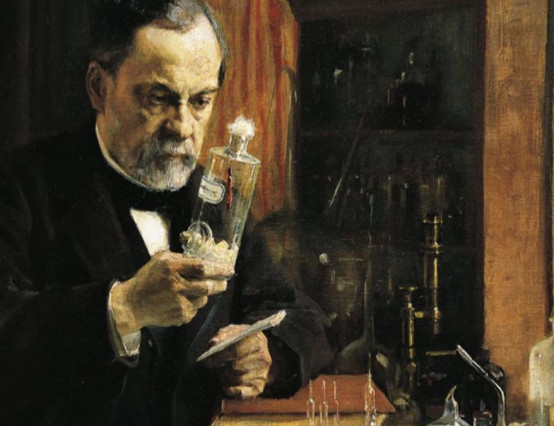Before one can even consider answering whether humanity is attracted to Fascism, they need to work out: What is Fascism? Well you might think to just Google it or to look in a dictionary, and if one does that they get a rather vague definition, such as this one provided by the Oxford English Dictionary, “An authoritarian and nationalistic right-wing system of government and social organisation.” That doesn’t really help us pin down what Fascism actually is, yes, it is authoritarian and nationalistic and usually right-wing, but what is it? Well the next course of action would be to look at the etymology of the word ‘Fascism’, which goes all the way back to the early Roman Republic. The heads of the Republic were protected by bodyguards called Lictors, who waved a stick called a ‘Fasces’ made up of a bundle of birch wood tied together with a red cord. As a metaphorical object the fasces represented the different social classes tide together working towards a common goal. As individual birch rods they were weak, but together they were strong. Ok so now we are getting somewhere, but we still aren’t totally there. Well thankfully Umberto Eco, an Italian author who lived under Mussolini’s reign, compiled 14 signs of Fascism. Eco agreed Fascism is confusing because there isn’t one unifying principal or ideology, so he tried his best to give 14 general examples of what fascism looked like: fascists do not take kindly to criticism, they appeal to nationalism through Xenophobia, the fascist regime is built on a frustrated middle class, it gains steam through collective populism (minority rights are given up for the larger group), ‘Newspeak’ or simplified digestible ways to communicate rule fascist discourse, the cult of tradition, a rejection of modernism, people are susceptible to the cult of action for action’s sake, thrive off fear of difference and racist rhetoric, a fear of others wealth, permanent warfare, political elitism, reliance on a death cult, and power transfers to sexuality. That is of course a long list, and is just a list of general examples of what Fascism may look like, and that’s the thing, Fascism comes in many different forms - it is not always the same. But at the end of the day, George Orwell argued in his essay ‘What is Fascism?’ that fascism as a word is pretty much meaningless. Orwell stated that if people could decide on a working definition, it will inevitably become over used and watered down. Fascism is often used as a favoured attack from the left to mean anything from a shrewd venture capitalist to a person overly concerned with grammar (much like the right use socialism or communism as a slur). But just using it as an insult removed the historical significance of the word, belittles the suffering. Eventually it get to the point where our liberal use of the word has caused it to lose its linguistic power, and so when a real fascist appears, our use of the word to brand them becomes irrelevant and no intervention takes place. So now we understand the generality of Fascism, and possibly that we will never be able to truly define it, why do we gravitate towards it?
Well French philosopher Gilles Deleuze and militant anti-psychiatric Felix Guattari argue that the desire for oppression comes from the belief that people should repress their desires, should conform, assimilate, obey. Through this technique of repression, the masses are primed to accept Fascism. Fascism isn’t just something that happens within governments, but rather inside all of us - it is a fascination with, and love of, power. People yearn to be ruled, protected, humiliated, and dominated, argue Deleuze and Guatteri. They are aroused by their unconscious desire to submit to strength; the despot satiates the need for a providing father and a nurturing mother. An example of this, although fictional, is Darth Vader from Star Wars - the Empire is often interpreted as a commentary on the Fascism of the Nazi’s - whose name is widely thought to come from the German for father, ‘Vater’, and who is revealed to be the father of the main character Luke Skywalker. Powerful leaders and shows of force all carry certain psychosexual elements.
We live in a society prone to inducing tremendous amounts of anxiety, specifically the fear of death, or the death instinct as Deleuze and Guattari put it. Hence, we have the desire to live in a conflict-free existence, a life without danger or struggle, and all one has to do to obtain this existence is to give up their freedom and conform to the expectations of the Fascist leader. This desire for oppression isn’t just a social function, but a psychological phenomenon spread and sustained by typical Freudian psychoanalysis, and it’s concept of the ‘Nuclear Family’ - a mother, a father, and ourselves as the children. Through the heralding of an ideal family unit, people are taught to deny desire, to be ashamed of their sexual urges, any atypical fantasies or predilections, to give into their inclinations is perverted. For Deleuze and Guattari, traditional psychoanalysis is part of an entire social scheme dedicated to making people feel inferior, scared, and inadequate.
Famous Italian fascist, Benito Mussolini, was actually the first person to invent the term fascism in the 1920s. According to Mussolini, “The Fascist conception of the State is all-embracing; outside of it no human or spiritual values can exist, much less have value. Thus understood, Fascism is totalitarian, and the Fascist State - a synthesis and a unit inclusive of all values - interprets, develops, and potentiates the whole life of a people.” This is essentially the idea that Deleuze and Guattari criticise.
They specifically attribute this mental conditioning to the Freudian figure of Oedipus (the man who killed his father and slept with his mother). Freud’s Oedipus Complex over simplifies the complexity of desire and marginalises homosexuals, schizophrenics, and people with autism. Anything outside of Freud’s model is rejected as deviant or ripe for ‘treatment’. The Oedipal ideal is omnipresent, accepted as gospel, ingested in schools and work, and in social relations, by teaching people to love subjugation, domination, and oppression. In contrast to psychoanalysis, Deleuze and Guattari suggest schizoanalysis - analysis that isn’t based on normalcy, power, sexuality, or repression. Against Oedipus they prefer Anti-Oedipus, a fascist-fighting, desiring entity, and against the church of psychoanalysis that would have us accept despotism, they ask that we allow desire to be free from the chains of Oedipus.
That then raises the question, does the inherent oppression that comes with Fascism have anything with our want, or lack thereof, for freedom? Jean-Paul Sartre in his ‘Existentialism is a Humanism’ argues that because there is no god, we are condemned to be free. One first exists and then invents oneself through their choices, or as Sartre put it, “Existence precedes essence.” But freedom is daunting and leads to fear of abandonment, with no god to guide us, our total freedom means we are solely responsible and alone in what we become. So to alleviate this burden we will attempt to deceive ourselves into believing we are not free, or what Sartre called “acting in Bad Faith.” What Fascism offers is a relinquishing of choice, we allow someone else to decide who we are, thus we act in Bad Faith. We constantly make choices that define us and one’s sense of self is constantly changing. But now say you get a job in a Fascist regime, a Nazi Soldier involved in the concentration camps for example. Sartre argues that people act in bad faith in their occupations by equating themselves to their roles, so that the actions or crimes they commit, and hence the choices they make, are not made by them the individual, but the job - allowing one to execute their actions in a mechanical, over-zealous way. People get to dissociate the crimes committed while in uniform, because the uniform isn’t them, it’s the leader, it’s the regime. One doesn’t act on his own choices but rather on how people expect him to act, thus he is in bad faith.
But another crucial part to our attraction to Fascism is our fear of death, which may sound strange, Fascism is often synonymous with death and destruction. However, in his 1973 novel ‘The Denial of Death’ Ernest Becker argued that almost everything we do is a way of managing the fear of our own demise, and the deaths of those we love, or what he called death anxiety. Human violence, Becker posits, is a natural response to death denial, dishing out death gives us a sense that we are in control of it - whether that be on the battlefield or in a gas chamber. Killing other people gives us the feeling we own death, reducing death anxiety. However, according to Buddhism, Jarāmarana, the desire to escape old age and death, is a dangerously seductive impulse, and Becker highlights this in what he calls the terminal point of death denial, “The person seeks to avoid death, but he does so by killing off so much of himself and so large a spectrum of his action-world that he is actually isolating and diminishing himself and becomes as though dead.” Buddhism argues that the only way to defeat our fear of death is non-attachment - letting go of our desires. Becker called these people, coining the phrase from Søren Kierkegaard, the ‘Knights of Faith’, people whose authentic faith in something more powerful than death allows them to manage the terror. Kierkegaard meant faith in god, and Becker says the faith is “A matter of grace and not human effort”, in other words faith is not something you choose.
Another point is the role of religion in Fascism. To return to Mussolini, “Fascism is a religious conception in which man is seen in his immanent relationship with a superior law and with an objective will that transcends the particular individual and raises him to a conscious membership of a spiritual society. Whoever has seen in the religious politics of the Fascist regime nothing but mere opportunism has not understood that Fascism besides being a system of government is also, and above all, a system of thought.” Fascism and religion are often linked, the only example where this wasn’t the case was in that of Stalinism and Communism where the fascist regimes were often opposed by religious institutions, but the secular nature of these regimes could arguable have been said to be replaced by the cult of personality around the leaders. Fascism often bases itself on one of the best sale pitches in the world, namely religion. Fascism needs its followers to engage in docile servitude to the all-powerful State, thus it models itself on organized religion’s ability to control its followers en masse via fear (usually of God) and repression (of human nature, needs and rights). Thus the people fight and act under a Fascist regime, not for the want of freedom, democracy, justice or such, but rhetoric or simple dogmatism. All of this is promulgated by the tool of fear - for the non-secular fascist the fear that God will smite you and punish you for not carrying out your ‘duty’, and in the secular ones that the leader himself, who is all powerful and benevolent, will despise you.
So if we apparently subconsciously crave fascism, why do we oppose it so vehemently? We have seen so many examples of fascism throughout history: Romania and Ion Antonescu, Austria and Engelbert Dolfuss, Italy and Benito Mussolini, Spain and Fransico Franco, Croatia and Ante Pavelić, Argentina and Juan Perón, Norway and Vidkun Quisling, and of course Germany and Adolf Hitler. Each time, people are disgusted and repulsed by it, and obviously the most famous fight against fascism was that of World War Two. To return to Deleuze and Guattari, they would argue that this disgust for our subconscious desire for oppression spurs from our more powerful and prevalent desire for freedom, the want to be able to have desires, the Anti-Oedipus.
Take for example, the anti-fascist movement (A.K.A. ANTIFA), a movement that has come under fire recently, being labelled as a terrorist organisation from a man many label as a Fascist, President Donald Trump. The funny thing about President Trump’s delcaration of antifa as a terrorist organisation (via social media by the way - you know the common place for world leaders to make declarations that a certain organisations were/are terrorists) is that antifa is not even an organisation, rather it is a loose collection of individuals and groups that engage in aggressive mobilization against far-right extremist movements, especially violent white supremacists. Admittedly within antifa there are anarchists, a portion of whom descend on protests to engage in vandalism and violence, with the overall goal of destruction and destabilization. However, antifa is so decentralised that it has no identifiable leadership, funding streams, training camps, or strategy for recruitment. It is of course intentional that President Trump labelled antifa as alt-left “domestic terrorists”, but made no mention of the alt-right extremists who weeks prior had threatened violence against the lockdown, and who had responded violently against the BLM protests across the country, one imagines Trump doesn’t wish to upset the same Neo-Nazis who voted for him.
When one mentions antifa, the image is that of masked militants burning the streets. Yet the history of anti-fascism internationally is contrary to this image, anti-fascists take many forms, which are, for the most part, peaceful. Since the 1960s, British anti-fascist organisations such as Searchlight magazine have specialised in using investigative journalism to expose the extremes of fascist and far-right politics, while ‘Rock Against Racism’ made music to build a movement against the British National Front of the 1970s. Nigel Farage, former leader of UKIP and Brexiteer, described anti-fascists as no different to fascists. And while both the far left and far right do occasionally resort to violence, and both sides do small things to sustain politised communities like publish magazines and create websites, the ideas underpinning these movements could not be more dissimilar. Antifa is the ideal image of Anti-Oedipus, promoting acceptance of a diverse, multicultural world, a world full of desires and variety that should not be restricted by an authoritarian state, while right-wing extremists reject the diverse reality of modern life, preferring conformity, which often translates to violent bigotry.
So if a part of us is subconsciously attracted to Fascism, why do we fight it? Because we are all unique and diverse - we have different colour skin, different colour eyes, different colour hairs, different backgrounds, different beliefs and faiths, different wants, dreams, and desires. We are a species that desires, and desire is not uniform, it cannot conform or obey, and above all it should not be suppressed. That part of us, the part that wants to achieve our unique desires without having it hindered or restricted by a fascist dictator, is for most of us larger than the part of our us that wishes to be oppressed, the anti-Oedipal side of us is stronger than the Oedipal, this part of us is our humanity, and it is stronger and larger and more powerful than the monstrous part that represents fascism.
So let’s return to the question: do we crave fascism? Although Guattaria and Deleuze arguments may seem to suggest that, I don’t think so. Humans are social creatures by nature, they long to be accepted in society, and have a strong aversion to rejection. As our species evolved, getting kicked out of the group and having to survive by oneself, both in the primate world and often in modern times, meant death. In a fascist society these traits are brought to the forefront as people’s fear of rejection from the group arise, so they give up their desires so to be able to survive. In that sense it is a matter of craving survival rather than the desire to be oppressed by a fascist regime - we don’t necessarily want to give up our desires, but we do what we must to survive. In more tolerant societies, more things are considered acceptable and thus people are free to express themselves with less fear of rejection. Of course, no society is 100% tolerant, but the more tolerant it is, the less unique desires are seen as deviant. That brings us to our answer, which is a resounding no, we are not attracted to fascism necessarily. We are attracted to acceptance, and it just seems that a fascist society with its forced conformity will provide us with that acceptance into the social group, but we then realise for the fascist machine to run, a certain group will always have to either repress their desires or die for them, and a repression of ones hopes and dreams is not acceptance.







0 Comments